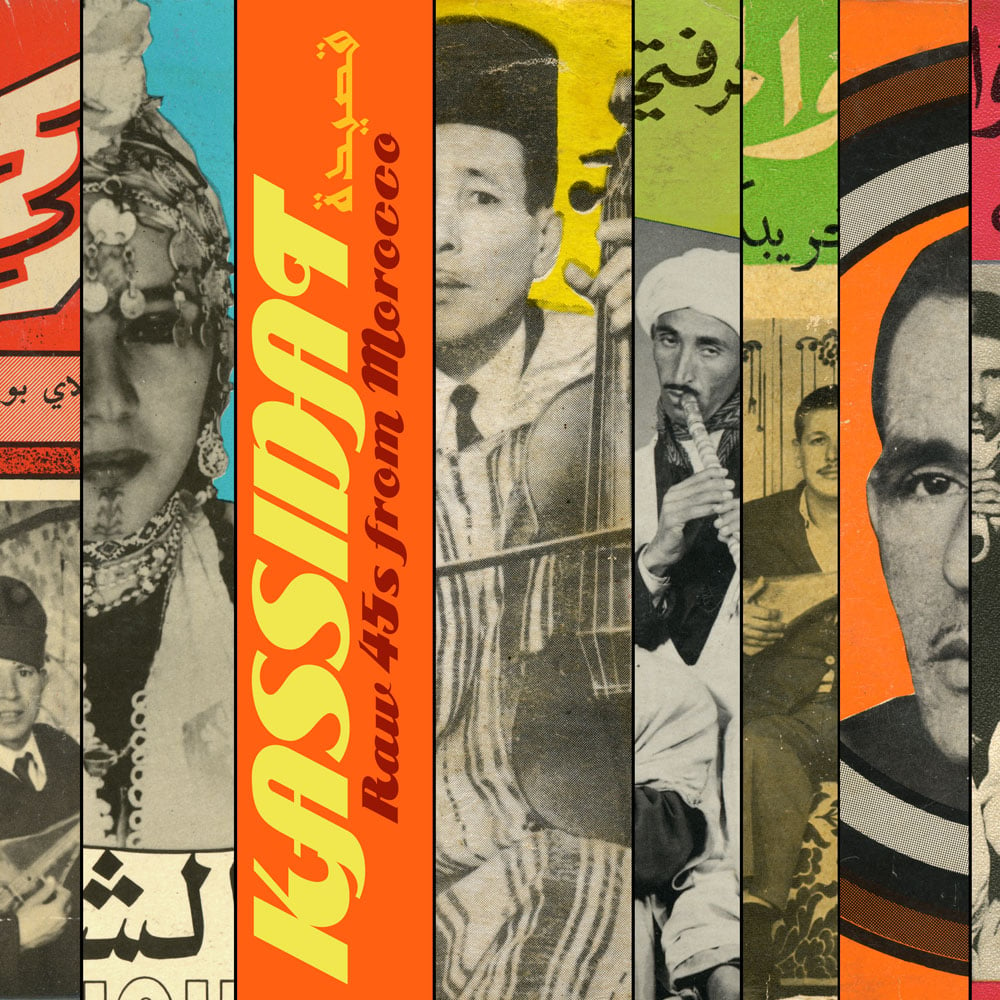
Kassidat: Raw 45s from Morocco
Fiery, hypnotic, and deeply rooted in tradition—this collection of Moroccan 45s from the 1960s transports listeners to the streets, festivals, and marketplaces of a newly independent nation.
After Morocco gained its independence in 1956, locally owned record labels flourished in Casablanca, releasing thousands of songs on affordable 45s. These singles created a snapshot of the raw and hypnotic Berber and Arabic music that thrived throughout the country before international pop influences took hold.
Kassidat: Raw 45s from Morocco looks back at this Golden Age of the Moroccan record industry with six extended sides recorded in the 1960s. Drawn from village festivals, markets, and city streets, these performances combine acoustic instruments, driving polyrhythms, and impassioned vernacular Arabic poetry. The result is visceral, smoldering, and unforgettable.
What’s Included
- Six extended tracks from Moroccan 45s (1960s)
- Downloadable in high-quality digital formats
- 20-page illustrated PDF booklet with liner notes and photographs
Praise & Reviews
“In the digital era, local cultures are dissolving rapidly into a global swirl of data… Kassidat retrieves a selection of Moroccan pop conceived specifically for local ears, recorded in the 1960s… gritty traces of physical place restored to vinyl and recycling evocatively in auditory space.”
— Wire Magazine
“Incredible collection of traditional Arabic & Berber 45s from the Golden era of Moroccan recording industry.”
— Boomkat
“Nothing is hypnotic the way that Moroccan music is, and instead of heading for the much romanticized & trance-inducing sufis of the mountains, this set brings you the incendiary tunes recorded on 45 for the urbane & friendly snake pits of Casablanca.”
— Weirdo Records
Compiler
David Murray, curator of Haji Maji (dedicated to Asian 78 rpm recordings) and shellachead.com (global 78s). Murray also produced Dust-to-Digital’s Luk Thung: Classic & Obscure 78s from the Thai Countryside and Longing for the Past: The 78 rpm Era in Southeast Asia.











